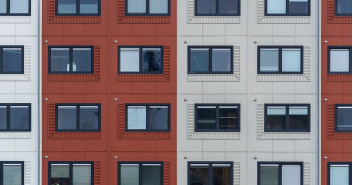Key Traits of the Best Modular Companies
Finding the best modular construction company starts with looking for the right qualities. This list will let you know where to begin.
While interest grows in modular construction as a solution to some of the most stubborn inefficiencies permeating the construction industry, so has the number of companies promising a solution that deploys innovative modular processes. While this results in no shortage of options for developers, it can also make finding the best modular construction company more difficult, since not all possess the same level of skills and abilities.
Carefully comparing options before entering into a deal can help developers avoid missing out on a company that would be better suited to their needs. This requires knowing what makes a good modular construction company.
Here are several key indicators that you’re working with a quality operation:
1. Experience in the Field
Modular construction companies that are newer to this approach might lean on traditional construction experience to inspire confidence in their modularization abilities. The fact of the matter is that the two construction approaches (modular and traditional) are very different.
A foundational knowledge of traditional construction is useful for success in modular construction, but those that rely solely on its principles to guide their modular construction operations are less poised for optimal results.
As such, be sure to ask a prospective modular contractor how much experience they have in this type of construction.
2. Cutting-Edge Technology
Like any other field, modular construction is always evolving. It goes without saying that modular construction today is far different than that of 50 years ago. But the field has enjoyed a number of significant advancements in the past few years. The modular firms positioned to deliver the best buildings are the ones pushing themselves to innovate and leverage the latest technology.
The leading example of cutting-edge technology in modular construction today is the use of Building Information Modeling (BIM). BIM is a 3D imaging technique in which features of a structure are represented in a digital space, combining varying elements of a design such as structural components and utilities to generate a holistic plan of a building from the inside-out.
BIM technology can be applied to various forms of construction, but it is a natural match to modular construction and the top firms have already leveraged this technology to improve their processes. The technology complements modularization because BIM designs are easily translated into the fabrication workflows through which manufacturers assemble their modules in their facilities.
Beyond the technology used to design their buildings, leading modular construction companies also prioritize making sure their manufacturing facilities are always outfitted with the latest in equipment and machinery. By utilizing the latest in robotics and equipment advancements, these companies ensure their teams have the best tools at their disposal and that every cut and bolt is applied with absolute precision. As such, be sure to inquire about a potential manufacturer’s facilities and the equipment they use to assemble their modules.
3. Scheduling Predictability
One of the leading benefits of modular construction is the highly efficient timelines on which a full building can be designed, fabricated and assembled for use. The predictability of a modular construction project from start to finish is a function of a number of factors including the firm’s ability to secure materials, coordinate their teams, and manage aspects of the on-site component of the build.
4. Cost-Conscious Design
A chief pain point among developers, whether they choose modular construction or not, is the risk of contractors charging them more throughout the construction process in the form of change orders or other construction choices that inflate the final cost of the build. The modular construction firms most worthy of your business will be the ones that make holding to the agreed price and staying on budget a priority.
The way the best firms are able to achieve staying on budget is by overseeing every stage of the project, from the first iteration of the design to fastening the final modular unit in place. By doing so, the contractor is able to see the entire project as a single process (rather than just one step that they are responsible for before passing that responsibility along) and is better able to eliminate inefficiencies and make the most beneficial decisions to meet their client’s budget.
5. Materials Used
Modular buildings can be made from a medley of materials, but the best manufacturers use steel. Even this comes in varieties, so it’s important to ask a potential company what steel they work with, especially if you plan on building a tall structure. For the largest and strongest buildings, you’ll want to hire a company capable of working with structural steel.
Manufacturing with steel is a particularly effective means of narrowing down candidates, as only a few modular construction companies in the United States have the experience and facilities necessary to adequately work with such a material.
The benefits of building with steel extend beyond its superior strength. It is resistant to fire, pests and mold, which makes it a more practical option for long-term maintenance.
6. Environmental Sustainability
Now, more than ever, environmental impact is in the public consciousness. Troubling reports from the world’s scientific community only emphasize the need to reassess how industries treat the planet and the urgency with which companies must change their processes.
Construction is not primarily known for its best practices when it comes to environmental sustainability, however, with modular construction the reputation may start shifting to a more positive light. Modular construction has the potential to greatly reduce the environmental impact traditionally associated with large-scale construction.
One reason modular construction generally has a reputation for being less wasteful than traditional construction is that fewer building materials are discarded unnecessarily due to the assembly-line nature of the process. Another leading contributor to construction-related pollution is the machinery present at the building site. Therefore, the more efficiently the on-site portion of the build is completed, the less pollution is emitted. Once again, this is a quality most reliably found in companies with long histories in the industry, as those most frequently achieve the fastest installation timelines.
Though the modular process as a whole is generally considered to be greener than traditional construction methods, not all firms are able to achieve the same standards. This is due to the fact that many of the qualities enabling modular construction to maintain a higher level of sustainability are maximized when implemented by an experienced company dedicated to excellence.
One such example is the utilization of steel in modular construction. In addition to its resistance to fire, pests and mold, steel offers more opportunities for recycling and less overall off-gassing. This makes steel the superior choice for environmentally conscious construction and sustainability.


